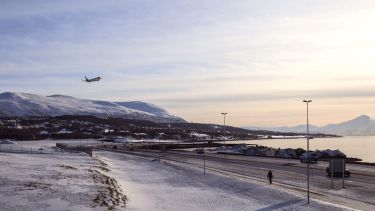A view from Iceland
by Freyja Haraldsdóttir, activist and a PhD student

For the past weeks I’ve come across so many articles and speeches about the Covid-19 pandemic saying that we are ‘all in this together’ or that we are ‘all in the same boat’. Each time I feel a bubble of irritation within me grow. Even yesterday, I was watching an interview with a psychologist who said that the fact we are ‘all in this together’ makes it an easier experience in midst of the difficulties. Again, the bubble grew.
To be fair, this is partly true. We are facing global crises that are affecting all of us. All around the world people are getting sick and some are dying. Although each nation handles this differently, most of us are being told to stay home and practice social distancing to keep others and ourselves saver. Most of us are probably, in one way or another, anxious and restless, doing our best to stay sane and getting through this.
But thing is, human beings have never been in anything together or travelled on the same boat. And we are not now. Our experience depends a lot on our social status, marginalisation, power and privilege. Our situation, now more than ever, is tangled up in how and if someone will catch us if we fall. In how the safety nets our nations will work in protecting us from becoming sick, taking care of us if we get sick and saving our lives will it be threatened.
For a disabled woman, I’m extremely privileged. I have a job and I can continue to work from home. I’ve not lost my job and I’m not forced to go to a sheltered workplace that has all shut down for now. This means I have income and I can keep routine in my life which is important for my mental health and safety. I have personal assistance services 24/7 and a great team of women showing up everyday to assist me get on with my day. In between shifts, they are being careful and safe and we are all – still – healthy. I’m not losing services or in fear that I can not keep my home clean, wash my hands, take a shower or make myself a meal. Food delivery in Iceland is growing so I can buy my groceries online and they will be there the next day. I don’t have to wait for days or weeks for it to arrive. I also have a strong network of family and friends who I can trust and who will catch me if something goes wrong and fight for my right to services or health care if I can’t do that myself. And the list goes on.
However, I am a disabled woman in a body that is labelled as weak and unworthy – disposable. I have fought tirelessly for getting personal assistance services and keeping it functioning without much interest or support from the social service system. The budget is low so it’s fragile, especially in times like these.
The Department of Civil Protection and Emergency Management and The Directorate of Health, which are alongside the government, responsible for making decisions, guidelines and providing information to the public in Iceland, have failed disabled people massively. Even though Iceland is a country of earthquakes, massive snowstorms, volcanic eruptions and avalanches, there are almost no plans in place for preventing harm or securing the safety for disabled people. Covid-19 prevention and emergency management is no different. They have not shown much interest or responsibility in involving disabled people and their organisations in emergency management and planning. We have had to fight for that too.
My access to healthcare is limited due to lack of knowledge about my impairment and plain fear among health care workers – my body is ‘too much’ of a hassle. At the same time, I’m not listened to or taken seriously which means that without having my parents or personal assistants by my side advocating for me I’m in danger. Multiple times I have been in hospital in a situation where the only people preventing massive harm or death are my parents. With Covid-19 nobody is allowed to be with you when hospitalised and it terrifies me, especially when I know that I cannot be sure that my life will be seen as worth saving.
So, the phrase that people in more privileged positions are constantly repeating, that we are all on the same boat, is far from the truth. In this pandemic I have first and foremost had to rely on my lived experience of exclusion and marginalisation to guide me the way. Also, I practice denial to a great extent because if I let myself think too much about the fact that the ship of nondisabled people has sailed, I lose sleep, can’t focus at work or keep going. Most importantly, I have sought and offered support among disabled friends where we try, without any valid resources, to build our own boat – or at least design some kind of life jackets for the hope of survival. Because alongside my family they are, as always, my sense of safety.

iHuman
How we understand being ‘human’ differs between disciplines and has changed radically over time. We are living in an age marked by rapid growth in knowledge about the human body and brain, and new technologies with the potential to change them.
